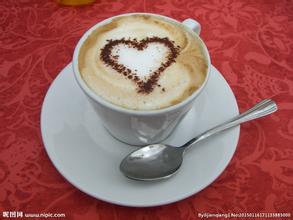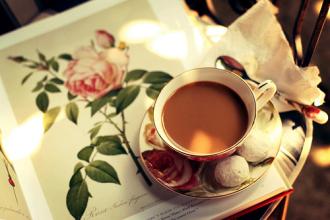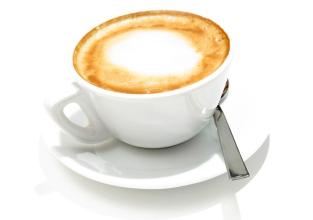Introduction to the grinding scale of Ethiopian coffee flavor description and variety production area
Harald coffee, which grows within 900m from the Darolebu plain to 2700 m from the highland mountain range of Chercher in eastern Ethiopia. These mountains do provide unique characteristics for these perennial coffee beans: the fruit is full and long, moderately acidic, with a typical mocha flavor. Harald Coffee is the world's leading premium coffee; although the variety is produced abroad, it gives people a friendly feel, smooth and smooth taste, giving people the rich taste of real mocha coffee. Harald coffee has almost the lowest caffeine content, about 1.13%. It is estimated that of the 52000 hectares under cultivation, the average annual production of this coffee is 26000 tons (equivalent to 430000 bags of 60 kg coffee).
Harald is not only one of the best sun-tanned coffee in the world, known as "coffee in the wilderness", but more like a beautiful legend. Harald, a name that reflects the rise and fall of Essex. At a time when the means of transport were still underdeveloped, especially when horses were the main means of transportation, high-quality thoroughbred horses became the goal that people pursued and aspired to. At this time, Essex Harald had the best thoroughbred horses in the world. So they initially classified the coffee grade as "quality coffee is as important as horses of purebred blood." So we see that the bags of raw Harald coffee beans are still printed with pictures of horses, this traditional packaging has been maintained until now Ethiopians also like to drink coffee, but they have their own way of drinking, usually drink their own coffee. First stir-fry the coffee beans over charcoal fire, then grind them, boil them, and then pour them into a cup or bowl to drink. Coffee culture is a part of people's life and is suitable for both elegance and vulgarity. So far, most of the country grows coffee in small families, and maintains very traditional and ancient planting techniques and methods, so it will never use pesticides and other chemical fertilizers, so Ethiopian coffee is the best choice for those who advocate nature.
Ethiopians love Angela, which is the main food in their daily life. The raw material is teff, a crop that resembles wheat and grows more than 3000 meters above sea level in Saijia. When Ethiopians eat, they usually like to drink tej, a wine made from honey, which looks very beautiful. I hear it tastes good. Ethiopia is the first country in the world to grow coffee and maintain the oldest coffee culture. It can be said to be "the origin of origins", the place of origin of coffee. According to statistics, the country produces about 396000 tons of coffee every year. It can be said that coffee varieties in other coffee producing areas are introduced or cultivated from Ethiopian coffee varieties, including the famous Panamanian rose summer variety. It is said that the rose summer was discovered from the rose summer forest of Ethiopia in 1931. The editor must have a taste of Ethiopia's native rose summer variety barista magazine once said: "one of the most beautiful parts of the coffee industry is the mystery that surrounds many coffee stories." We may never know whether the goats in Kaldi dance happily after tasting the coffee berries, but maybe we will more quickly find out the origin of the rose summer variety Yegashafi is a famous coffee variety in Ethiopia, named after the coffee-growing town of Yegashafi, which is nearly 2,000 meters above sea level and is one of the highest coffee producing areas in the world. The surrounding lakes Turkana, Abaya and Chamo bring rich water vapor, so the area is foggy all the year round, like spring all the year round, with a gentle breeze, cool and moist, giving birth to Yega Chuefei with delicate floral and sweet fruit aromas. Now Yejashafi coffee has become synonymous with Ethiopian boutique coffee.

Important Notice :
前街咖啡 FrontStreet Coffee has moved to new addredd:
FrontStreet Coffee Address: 315,Donghua East Road,GuangZhou
Tel:020 38364473
- Prev

Introduction to the varieties of grinding scale for taste and flavor description in Ethiopia (Sidamo, Yega Xuefei)
Ethiopia (Sidamo, Yirgacheffe) Flavor description Grinding scale varieties introduce Ethiopian Yegashafi coffee, although petite, it is gentle and delicate, sweet and lovely. As the hometown of coffee, thousands of years of planting history and processing tradition in Ethiopia have created high-quality washed Arabica beans. Shallow baking has unique lemons and flowers.
- Next

How to prepare Starbucks espresso roasted coffee beans instructional video
How Starbucks Espresso Coffee Beans Are Made Description: It is at the heart of all our espresso drinks, a blend of coffee from Latin America and Indonesia with rich aromas, soft acidity and intense caramel sweetness. Processing: washing method. Food pairing: caramel, spice, chocolate, nuts. Tasting suggestions: in the coffee
Related
- Detailed explanation of Jadeite planting Land in Panamanian Jadeite Manor introduction to the grading system of Jadeite competitive bidding, Red bid, Green bid and Rose Summer
- Story of Coffee planting in Brenka region of Costa Rica Stonehenge Manor anaerobic heavy honey treatment of flavor mouth
- What's on the barrel of Blue Mountain Coffee beans?
- Can American coffee also pull flowers? How to use hot American style to pull out a good-looking pattern?
- Can you make a cold extract with coffee beans? What is the right proportion for cold-extracted coffee formula?
- Indonesian PWN Gold Mandrine Coffee Origin Features Flavor How to Chong? Mandolin coffee is American.
- A brief introduction to the flavor characteristics of Brazilian yellow bourbon coffee beans
- What is the effect of different water quality on the flavor of cold-extracted coffee? What kind of water is best for brewing coffee?
- Why do you think of Rose Summer whenever you mention Panamanian coffee?
- Introduction to the characteristics of authentic blue mountain coffee bean producing areas? What is the CIB Coffee Authority in Jamaica?

